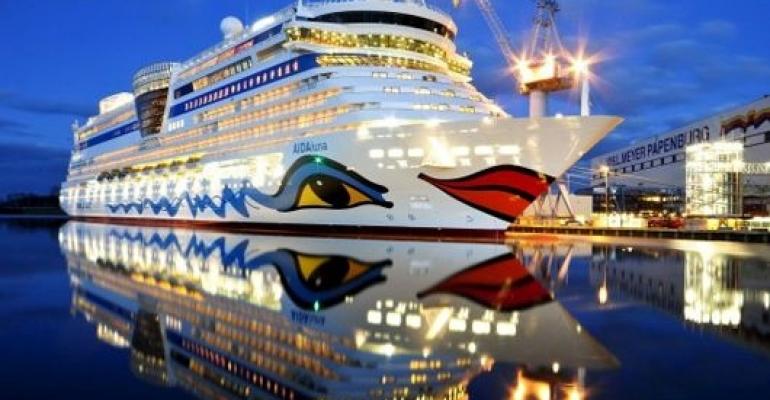Carnival recently released a third-party study confirming the company’s Advanced Air Quality Systems are positive for the environment, with wash-water samples having limits below those set by several major national and international water quality benchmark standards, including drinking water, further confirming safety and quality of wash-water.
This led to Carnival affirming that its Advanced Air Quality Systems – known in the industry as exhaust gas cleaning systems (EGCS) or scrubbers – are well within compliance of IMO’s most stringent wash-water quality guidelines.
Focused specifically on analyzing the composition and quality of wash-water from scrubbers, the two-year study included 281 wash-water samples from 53 Carnival ships equipped with the systems, creating the largest wash-water data set in the marine industry.
The samples were analyzed for 54 parameters by independent laboratories accredited by the International Organization for Standardization (ISO), using standardized EPA methods.
In February, the independent study results were presented publicly at a technical conference for Clean Shipping Alliance 2020 (CSA 2020).
Read more: Wallenius Wilhelmsen joins scrubber advocacy group
Specific to IMO wash-water requirements, the study confirmed results from previous studies showing the quality of the water used in the Advanced Air Quality Systems process was always far below the IMO monitoring limits for polycyclic aromatic hydrocarbons (PAHs) and the annual limits for nitrates.
When measured against IMO standards, the average wash-water test results in this study were over 90% lower than maximum allowable levels. In many cases, the materials were completely undetectable in the laboratory testing process.
Additionally, the report compared the samples to selected national and international water quality benchmark standards, including the German Waste Water Ordinance, the EU Industrial Emissions and the Surface Water Standards of the EU’s Water Framework Directive. The World Health Organization’s (WHO) drinking water guidelines were also evaluated. The Advanced Air Quality Systems test results compared favorably with all of these major benchmark standards.
Read more: EGCSA urges focus on health and environment amid hype over open-loop scrubbers
EGCSA urges authorities not to make hasty decisions banning open-loop scrubbers
Mike Kaczmarek, senior vice president for marine technology for Carnival, said: “Based on extensive emissions testing, we know that our Advanced Air Quality Systems in some ways outperform marine gas oil (MGO) in providing cleaner air emissions. And although we have known for a long time that the quality of water being returned to the sea is at a high level, based on our years of development of this data set, it was important to release the findings publicly as the latest scientific evidence showing the actual water quality.”
Kaczmarek added: “Comparing scrubber wash-water to both existing IMO requirements and also various other major water standards is useful to provide an informed perspective and to illustrate wash-water quality in a way that is easy to understand. These comparisons also provide relatable criteria for a number of specific parameters for Advanced Air Quality Systems, such as PAH concentrations, that are included within these standards.”
Carnival has installed scrubbers on over 70 ships in its fleet, combined with the adoption of LNG, shorepower and other sustainability initiatives.
Separately, a June 2018 report by Japan’s Ministry of Land, Infrastructure, Transport and Tourism on the ‘Impact of EGCS on the Marine Environment’ points to evidence supporting scrubbers as a safet and effective option for IMO 2020 compliance.
In the shipping sector, the use of open-loop scrubbers that discharge wash-water into the ocean has been banned by several countries and ports including a handful of Chinese ports and inland waterways, Singapore, and Fujairah.
Read more: Union of Greek Shipowners maintains stance against scrubbers
Copyright © 2024. All rights reserved. Seatrade, a trading name of Informa Markets (UK) Limited. Add Seatrade Maritime News to your Google News feed.


